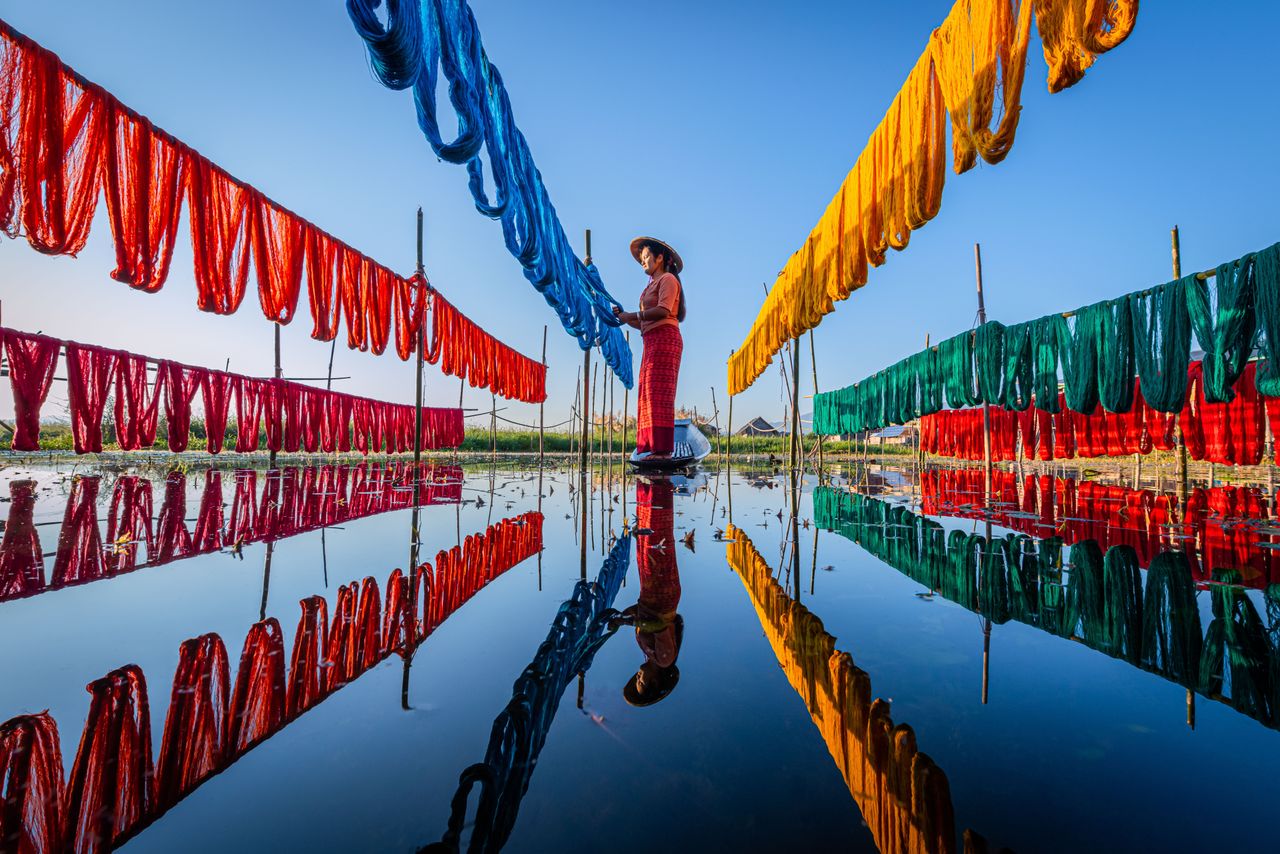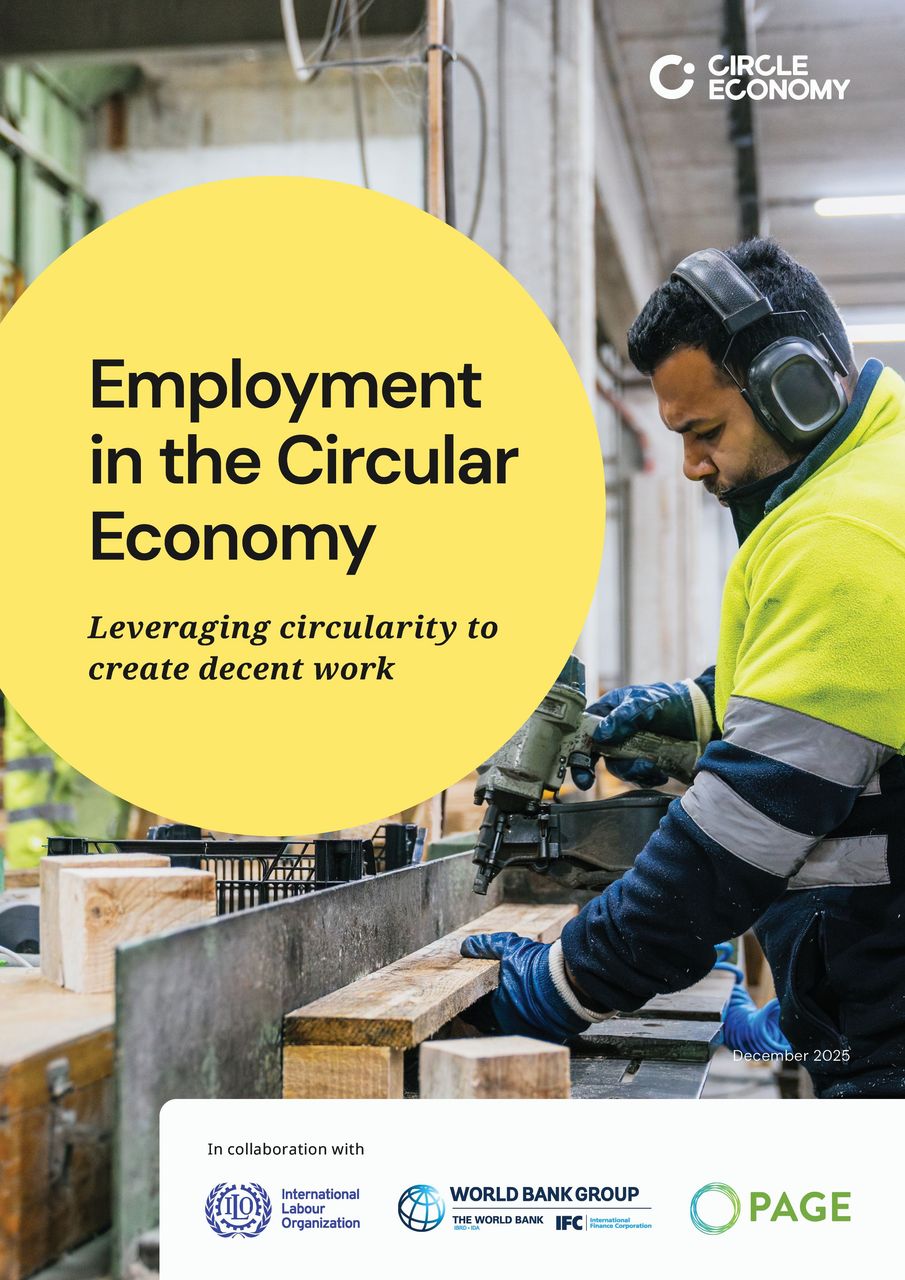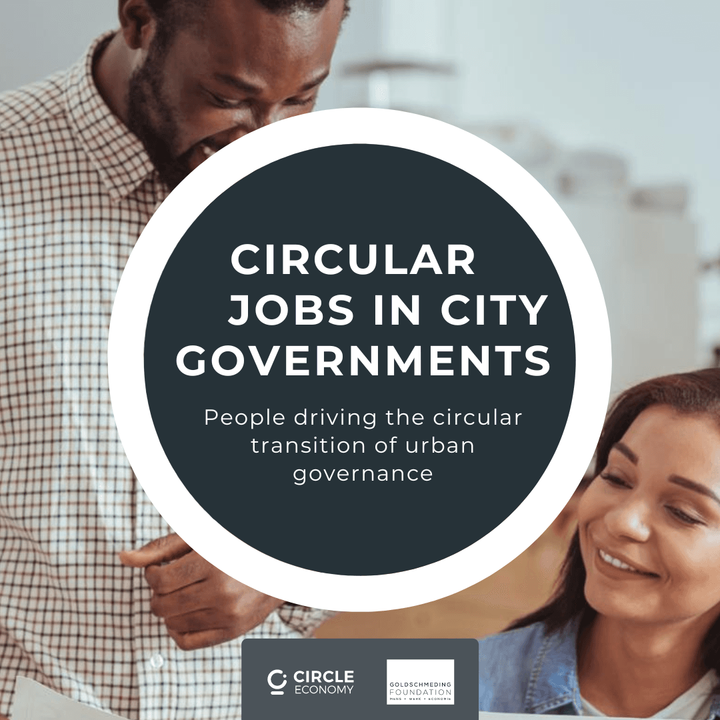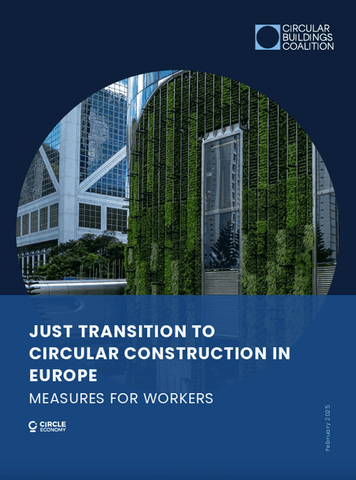Jobs
Circle Economy’s Circular Jobs Initiative researches labour markets, quantifies circular jobs, analyses impacts, and equips governments and industries with data, insights and skills for a just, inclusive circular economy.

Our vision
At Circle Economy, we champion a circular economy that protects our planet and prioritises people. Our Circular Jobs Initiative is dedicated to supporting economies and industries to understand the people, skills and enabling conditions that are needed to unlock the social benefits of the circular economy.
Our insights empower governments and businesses to plan proactively, ensuring these benefits reach everyone.

What we do
We study how circular strategies shape labour markets, creating skill development frameworks and collaborating with partners to ensure a just transition. Using tools like our Circular Jobs Methodology, we deliver data-driven insights on the diversity of people working in the circular economy and what’s needed to unlock its potential—minimising trade-offs and maximising social benefits.
Define and measure circular jobs
We quantify circular jobs for governments and industry to support circular economy initiatives and map the key skills needed to drive the transition across value chains, countries, and cities.
Analyse socioeconomic impacts
We analyse the socioeconomic impacts of circular economy strategies—at the city, national and value-chain level—with the help of local partners and our established frameworks.
Strengthen national and local capacity
We translate our insights into practical guidance, hands-on training and e-learning that people, organisations, and institutions can use to reskill and upskill for the circular economy.
Our highlights
Jobs in the Circular Economy Initiative
Our joint initiative with the International Labour Organisation and the World Bank Group puts data in the hands of policymakers and decision-makers to inform and support pathways towards more socially fair and just environmental and economic policies and interventions that leave no one behind.
Upskilling TVET institutions and training service providers
UNESCO-UNEVOC and Circle Economy launched a project to help TVET institutions support youth in inclusive, future-ready employment. Together, we’ve trained trainers and students across Ghana, Kenya, Nigeria, South Africa, Tanzania, and Uganda.
Circularity and informality: Redefining narratives
Workers in the informal economy often go unrecognised. We highlight their critical role in the circular economy, gathering voices globally to promote pro-poor, context-specific, and inclusive approaches that shape policies, projects, and investments.
What our clients say
Latest reports & publications




